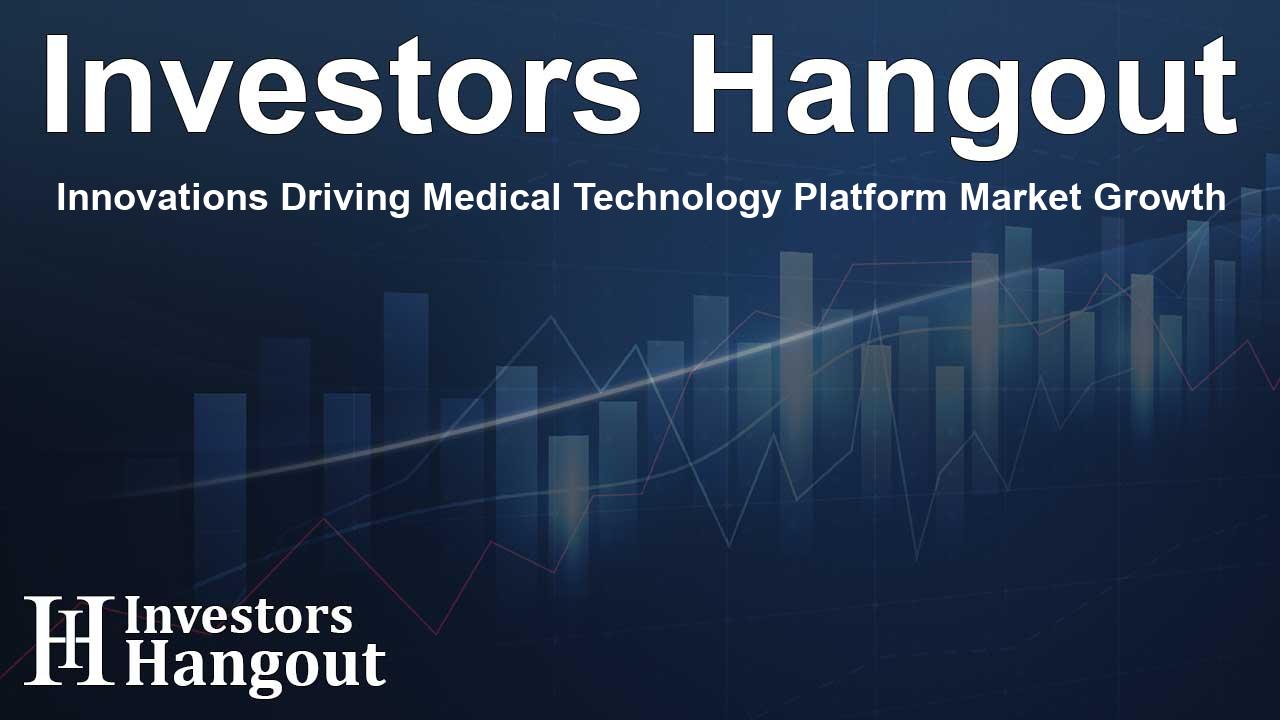Innovations Driving Medical Technology Platform Market Growth

Overview of the Medical Technology Platform Market
The global medical technology platform market is undergoing a remarkable transformation, expected to skyrocket from an estimated value of USD 31.59 billion in 2025 to USD 67.26 billion by 2032. This growth trajectory represents a compound annual growth rate (CAGR) of 11.4% during this period. The market is primarily being propelled by integration of advanced technologies such as artificial intelligence (AI), cloud computing, and the Internet of Medical Things (IoMT), which are fundamentally transforming healthcare delivery.
Trends Shaping the Future of Healthcare
A significant trend influencing the medical technology platform market is the shift towards more patient-centric digital ecosystems. Interoperability among healthcare applications has become crucial, as it contributes to better data management and sharing across various sectors. This interconnectedness helps in predictive analytics for disease management, ensuring a seamless experience for patients and providers alike.
Rising Demand for Digital Solutions
The increasing adoption of digital healthcare solutions is a substantial driver for market expansion. Today, patients and healthcare providers expect efficient and integrated digital experiences, which include telehealth services, remote monitoring, and mobile health applications. These platforms are not just enhancing patient engagement but also streamlining overall operations within healthcare settings.
Challenges and Opportunities within the Market
Despite the promising outlook for the medical technology platform market, some challenges may inhibit growth. High costs associated with advanced medical devices, along with growing concerns over data security, could impact adoption rates. High-tech solutions such as robotic surgical systems and imaging tools are significant investments, often limiting accessibility for widespread use.
Focus on Patient Care and Chronic Conditions
As the incidence of chronic diseases continues to climb, there’s a growing emphasis on enhancing patient care through improved diagnostic and monitoring solutions. The medical technology platforms are specifically designed to facilitate earlier diagnoses, personalized treatment plans, and better recovery outcomes, fulfilling the demands placed on modern healthcare systems.
The Role of AI in Medical Technology
AI is increasingly becoming a cornerstone of innovation in the medical technology platform market. By improving diagnostic accuracy and optimizing clinical workflows, AI applications are elevating traditional healthcare practices. They allow for faster, data-driven insights that lead to improved patient outcomes across various healthcare settings.
Leading Companies and Innovations
Prominent players such as Medtronic and GE Healthcare are at the forefront of employing AI within healthcare platforms. For example, Medtronic has launched various AI-driven algorithms aimed at optimizing surgical workflows and enhancing postoperative analysis. These advancements reflect a broader trend within the industry towards automation and intelligence integration, enhancing effectiveness in treatment delivery.
Emerging Trends in the Market
Significant trends including the expansion of telehealth and remote patient monitoring have defined the current landscape. The COVID-19 pandemic catalyzed the need for remote healthcare services, pushing for robust and adaptable medical technology platforms that support virtual consultations. The future appears bright as demand for preventive care and at-home treatments accelerates.
Government Support and Regulation
Regions around the world are now pushing for the adoption of electronic health records (EHRs), setting a strong groundwork for medical technology platform growth. Innovations in areas such as AI and machine learning are expected to enhance offerings further, allowing healthcare providers to tackle emerging challenges. Regulatory agencies are increasingly encouraging integration of latest technologies within healthcare frameworks, promoting efficiency and security concurrently.
Frequently Asked Questions
What is the expected growth rate of the medical technology platform market?
The medical technology platform market is projected to grow at a CAGR of 11.4% from 2025 to 2032.
What are the key factors driving the growth of the market?
Key drivers include integration of AI, demand for digital healthcare solutions, and the need for interoperability across healthcare systems.
Which segment is expected to dominate the market?
The cardiovascular segment is expected to remain the most lucrative application area, capturing a significant market share.
How are high costs impacting the adoption of medical technology platforms?
High costs associated with advanced medical technologies may deter widespread adoption, limiting market demand.
What role does AI play in the medical technology platform market?
AI enhances diagnostic accuracy and optimizes workflows, ultimately leading to improved patient outcomes across varied healthcare settings.
About The Author
Contact Kelly Martin privately here. Or send an email with ATTN: Kelly Martin as the subject to contact@investorshangout.com.
About Investors Hangout
Investors Hangout is a leading online stock forum for financial discussion and learning, offering a wide range of free tools and resources. It draws in traders of all levels, who exchange market knowledge, investigate trading tactics, and keep an eye on industry developments in real time. Featuring financial articles, stock message boards, quotes, charts, company profiles, and live news updates. Through cooperative learning and a wealth of informational resources, it helps users from novices creating their first portfolios to experts honing their techniques. Join Investors Hangout today: https://investorshangout.com/
The content of this article is based on factual, publicly available information and does not represent legal, financial, or investment advice. Investors Hangout does not offer financial advice, and the author is not a licensed financial advisor. Consult a qualified advisor before making any financial or investment decisions based on this article. This article should not be considered advice to purchase, sell, or hold any securities or other investments. If any of the material provided here is inaccurate, please contact us for corrections.
